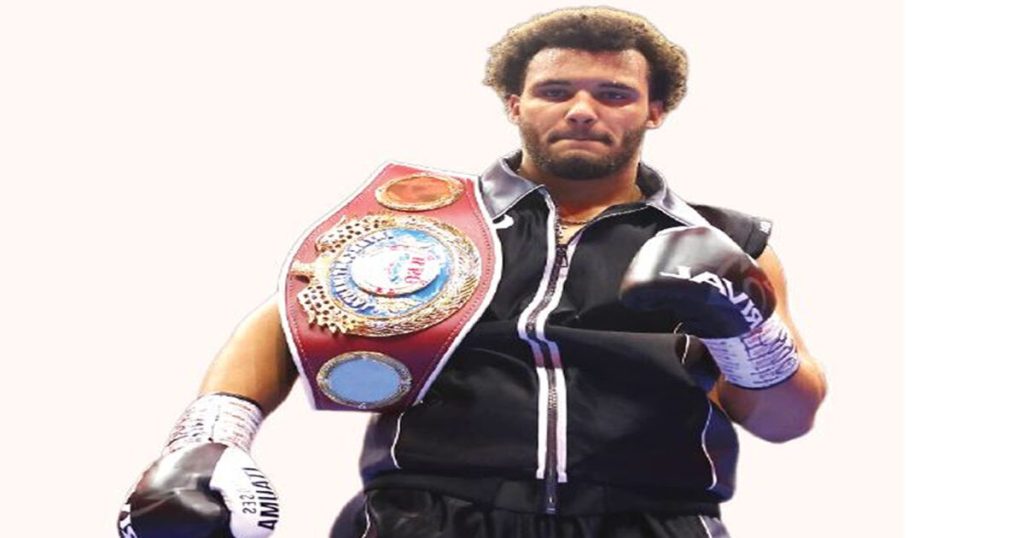Lennox Lewis, the former undisputed heavyweight champion, has strongly advised rising star Moses Itauma against pursuing a premature clash with the current reigning champion, Oleksandr Usyk. Lewis believes that such a high-stakes fight at this stage of Itauma’s career would be detrimental to his long-term development. While Itauma’s recent first-round demolition of Dillian Whyte has catapulted him into the spotlight and fueled discussions of a potential title shot, Lewis emphasizes the importance of patience and strategic timing in navigating the complex world of professional boxing. He argues that rushing into a fight with an experienced and dominant champion like Usyk could derail Itauma’s trajectory and inflict lasting damage on his burgeoning career.
Lewis’s advice stems from his understanding of the sport’s inherent risks and the potential pitfalls of premature exposure to elite competition. He suggests that Itauma should focus on honing his skills and gaining valuable experience against a wider range of opponents before stepping into the ring with a fighter of Usyk’s caliber. Usyk, a seasoned and technically gifted boxer, presents a formidable challenge for any heavyweight contender, let alone a relatively inexperienced prospect. Lewis’s recommendation centers on the idea that Itauma should bide his time, allowing his skills to mature and his strategic acumen to sharpen before taking on such a monumental challenge. This approach would minimize the risk of a demoralizing defeat and maximize his chances of future success when he is fully prepared to compete at the championship level.
Adding further complexity to the situation is the uncertainty surrounding Usyk’s future in the sport. With the Ukrainian champion expected to retire relatively soon, potentially after just one more fight, Lewis suggests that Itauma would be better served by waiting for the inevitable vacancy at the top of the division. This strategy would allow Itauma to continue developing his skills and building his reputation while the heavyweight landscape undergoes a significant shift. By patiently waiting for Usyk’s departure, Itauma could position himself as a leading contender for the vacant title, thereby avoiding a potentially damaging premature encounter with the current champion.
Usyk’s situation is further complicated by a recent injury and the subsequent request by his promoter, Frank Warren, to postpone his mandatory WBO title defense against Joseph Parker. This request, pending approval by the WBO, has created a ripple effect throughout the heavyweight division, leaving contenders like Itauma in a state of limbo. The WBO’s ongoing investigation into the legitimacy of Usyk’s injury, fueled by a video of him dancing, adds another layer of uncertainty to the situation. If the WBO decides to strip Usyk of his title, Parker, as the mandatory challenger, could be elevated to champion status, further reshuffling the contenders and potentially creating new opportunities for Itauma.
This period of uncertainty within the heavyweight division underscores the wisdom of Lewis’s advice to Itauma. With Usyk’s future unclear and the potential for significant shifts in the rankings, a cautious and strategic approach is paramount. Itauma, currently highly ranked by both the WBA and WBO, stands to benefit from observing the unfolding events and carefully choosing his next move. Rushing into a fight with Usyk, or any other top contender, before the dust settles could prove to be a costly mistake.
In conclusion, the confluence of Usyk’s impending retirement, his injury status, and the WBO’s investigation creates a complex and dynamic landscape within the heavyweight division. Navigating this landscape requires careful consideration and strategic decision-making, particularly for a rising prospect like Moses Itauma. Lennox Lewis’s counsel to exercise patience and avoid a premature clash with Usyk resonates as sound advice in this context. By focusing on his development and waiting for the right opportunity, Itauma can maximize his potential and solidify his position as a future force in the heavyweight division. This measured approach, while perhaps less glamorous in the short term, offers a far greater chance of long-term success and avoids the potential pitfalls of a premature ascent to the championship level.














